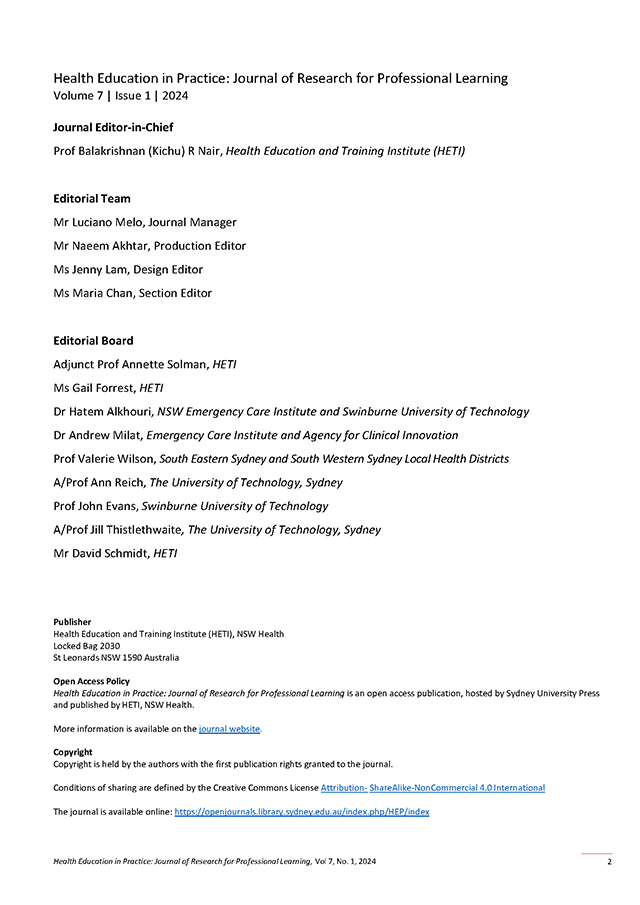Evaluation of a multicomponent educational intervention to decrease general practice registrars’ prescribing of benzodiazepines and related drugs: the BENEFIT prospective controlled study
DOI:
https://doi.org/10.33966/hepj.7.1.18084Abstract
Background: Benzodiazepines and medicines (including Z-drugs) are associated with frequent and serious related adverse effects. Despite this, they are frequently prescribed by general practitioners (GPs). We aimed to evaluate the effectiveness of a multi-component educational intervention designed to decrease the prescribing and initiation of these drugs by GPs in training ('registrars').
Methods/design: A pragmatic non-randomised, non-equivalent control-group design nested within the Registrar Clinical Encounters in Training (ReCEnT) cohort study was used to assess an educational intervention delivered to registrars in Australia. The intervention was underpinned by the Behaviour Change Wheel framework and included face-to-face workshops with pre- and post-session readings, a webinar for supervisors, and facilitation of registrar-supervisor dyad interactions. Analyses employed univariable and multivariable logistic regression. The p-value of an interaction term in the multivariable regression was used to determine the statistical significance of intervention-related change.
Results: Analyses included data of 1,088 intervention registrars and 1,003 control registrars. While some decrease in prescribing was seen, compared to the change from pre-post in controls, there were no statistically significant decreases in the ‘Intention to Treat’ (interaction aOR = 0.92, 95%CI: 0.70, 1.20, p = 0.52) or ‘On Treatment’ (interaction aOR = 0.87, 95%CI: 0.65, 1.16, p = 0.33) populations, and no statistically significant decrease in new prescriptions in the ‘Intention to Treat’ population (interaction aOR = 0.88, 95%CI: 0.58, 1.35, p = 0.57).
Implications: Our study may have implications for further research aiming to identify effective strategies to promote appropriate benzodiazepine prescribing among GP registrars. Continued education for registrars around rational benzodiazepine prescribing is essential. This study is an initial step in evaluating the behaviour change intervention and further investigation and extended observation is warranted. This study highlights the educational challenges in improving rational benzodiazepine prescribing.
Limitations: Randomization in the study design was not practicable.
Trial registration: Australian New Zealand Clinical Trials Registry, ACTRN12618000824268

